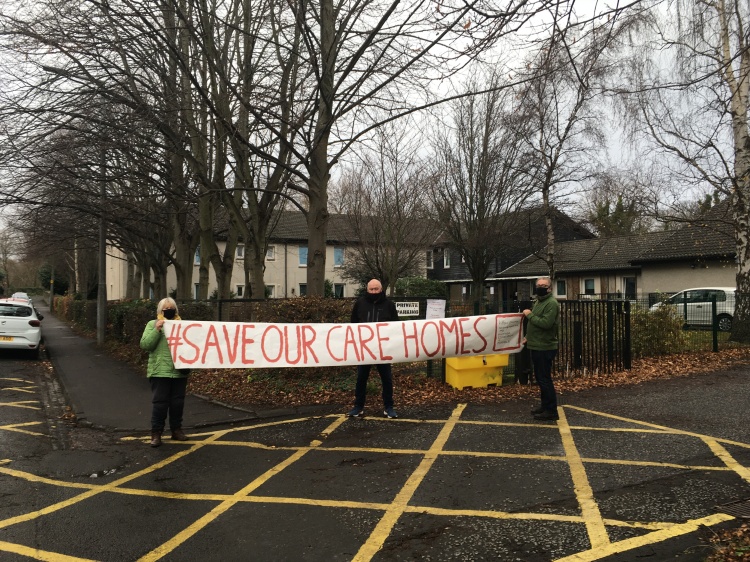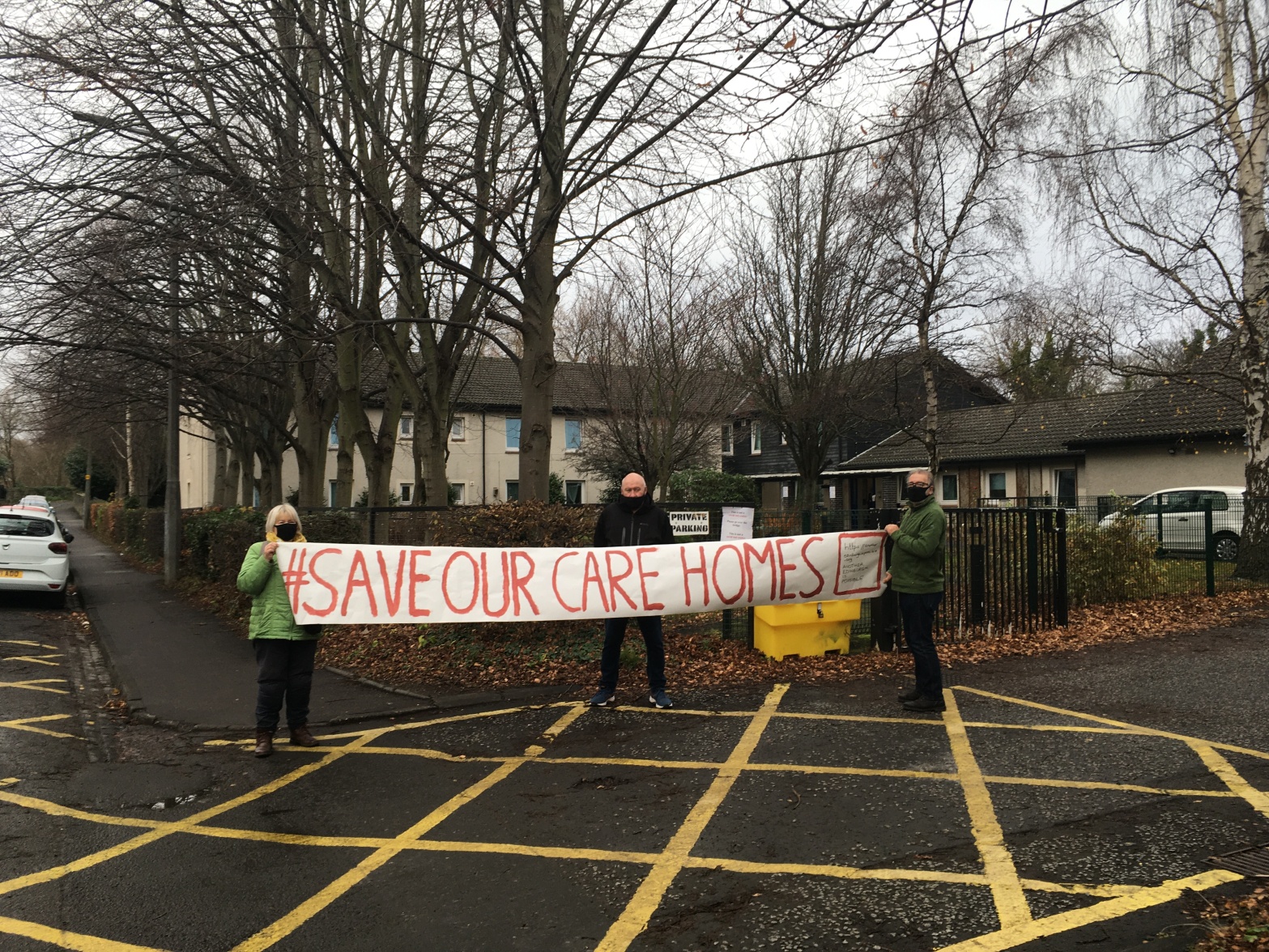Pete Cannell reflects on the recent EIJB meeting which agreed cuts of close to £50 millions in the budget for health and social care. We welcome other contributions on these issues, particularly personal experiences and ideas for campaigning. Use the contact form to get in touch.
A cuts budget – again
On Monday 18th March the Edinburgh Integration Joint Board (EIJB) which is responsible for health and social care services in the city agreed its 2024/5 budget. There’s an eyewatering £67 million gap between the EIJB’s income and projected expenditure for the year. In agreeing the budget board members gave the greenlight to a long list of measures that will mean a further serious deterioration in services.
I listened in via the webcast to most of the debate. The main discussion was preceded by strong deputations from the council unions, Edinburgh TUC and third sector organisations. While the deputations highlighted the impact of the proposed budget on lives and livelihoods, once they finished the board’s deliberations were a million miles away from the lived experiences of those in need of care and of the workers in the care system. What stood out for me was not the things that were said but those that went unmentioned. You wouldn’t have known from the debate that just a year previously the Care Commission had published a damning report on the state of social care in Edinburgh. Among a long list of failings, the report concluded that:
… there were structural weaknesses in the planning and delivery of services in the health, social work and social care system. This led to areas of service gaps which in turn resulted in too many people and carers not receiving services at the right time or place.
And that
Staff vacancies, turnover and absences impacted on staff’s capacity to undertake their roles and responsibilities as fully and to the quality they desired. There was not a sufficiently available capacity of appropriately qualified staff to deliver the intended assessment, care planning, service delivery and review outcomes.
Neither would you have known that Edinburgh stands out among local authorities in Scotland for the level of privatisation and outsourcing of care, which means that across the service private companies are raking in profits from money that we provide through taxation.
Hitting the most vulnerable
So the proposals before the board on 18th March have to be seen in the context of a system already in crisis, and where the most significant action by the board since March 2023 has been a programme of reviewing care packages with the very clear aim of cutting provision to save money.
The EIJB approved all the proposals before it. A list of actions that will hit vulnerable people and their families across the city.
- Third sector organisations will all suffer 10% cuts to their services. At the beginning of the meeting representatives from some of the groups affected gave stark examples of what these cuts mean in practice. And they made it clear that the services and support that they will no longer be able to offer will have direct impacts on the quality of life of hundreds of people and will in the medium to long term add to demand for services elsewhere, most notable the NHS. The Be Able service – operating to support older people in the Southeast of the city will lose all its funding.
- The Ford’s Road and Clovenstone care homes are to be closed. Further reducing the public provision of residential care for the elderly. No recognition that elected Edinburgh councillors voted last May for the proposition that residential care should be a public service!
- The programme of reviewing care packages will continue. A process where the odds are stacked against the most vulnerable and the poor and those who have no one to speak for them. In addition, proposals included an increased use of income generation through charging for services or equipment, again hitting the poorest hardest.

Ratcheting up inequality
These are just some of the measures agreed. At every level Council, Scottish Government and NHS paper policies on fair work, poverty reduction, inclusion and equality are ignored and contradicted. The EIJB plans hit women hardest – women as care workers, as unpaid carers and as service users.
It’s not possible to go through all the implications of the new budget in a short article but it is worth noting that the plans are likely to fail even in their own terms and it may only be months before the next crisis budget meeting. Many of the agreed actions are sheer fantasy. The words ‘grip and control’ appear again and again through the budget paper. Apparently by getting a ‘grip’ – services can be procured more cheaply, and savings can be made. It seems highly unlikely that at a time of rising prices and with a system that has failed to do these things in the past, appointing a few new managers will save many millions of pounds.
What can we do?
In my view campaigning against the care cuts will not stop the spiral of decline unless we start by being clear about root causes. There is so much evidence that outsourcing care to the private sector had driven the decline of quality in health and social care provision. The case for removing profit from care is overwhelming. In addition, maximising profit for private companies drives low pay and high staff turnover, and while care workers work heroically to do the best job they can, they do it in a system where experience and expertise is underpaid and undervalued. So, at the front of our campaign, we have to say:
Take care back into democratic public ownership.
Pay care workers a proper wage that recognises their professionalism and the value of their work.
But how do we do this? We need a powerful, united campaign that includes unions, community groups, carers, and service users. And we don’t have that right now. The first steps in building campaigns that really make a difference are always difficult. No one person, or group has all the answers but together we can crowdsource ideas. I think we we’ll only be able to make this happen if we start getting the real stories of what it’s like to be old, or sick or in need of support into the public domain. At any point in time the need for social care may seem to be an issue for just a minority but in reality, it will affect almost all of us.

Many thanks for this and the important points raised here about the unequal impact of the cuts. I would suggest that simply relocating services back into public ownership isn’t sufficient to address the multiple problems currently besetting social care. We need to fundamentally rethink and restructure the relationship between social care and the people who use it and the communities where it is provided. There’s some interesting work happening in Northumbria that might be of interest as the challenges faced by Edinburgh aren’t unique, and we need to look beyond the city to find answers to what’s happening and ways of changing the conversation:
https://www.changingfuturesnorthumbria.co.uk/rethinking-public-service
LikeLike